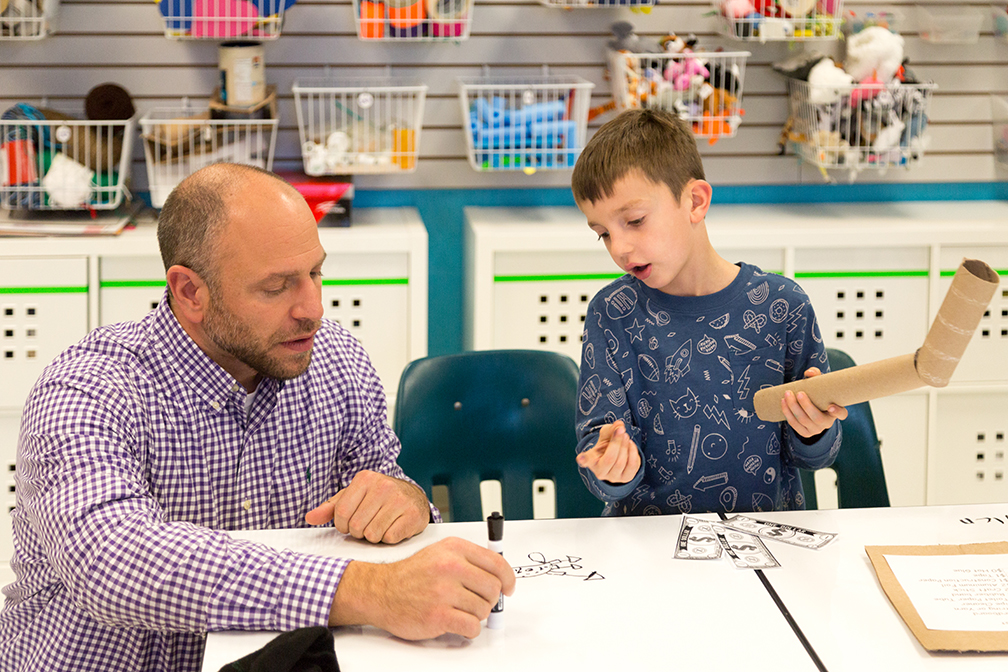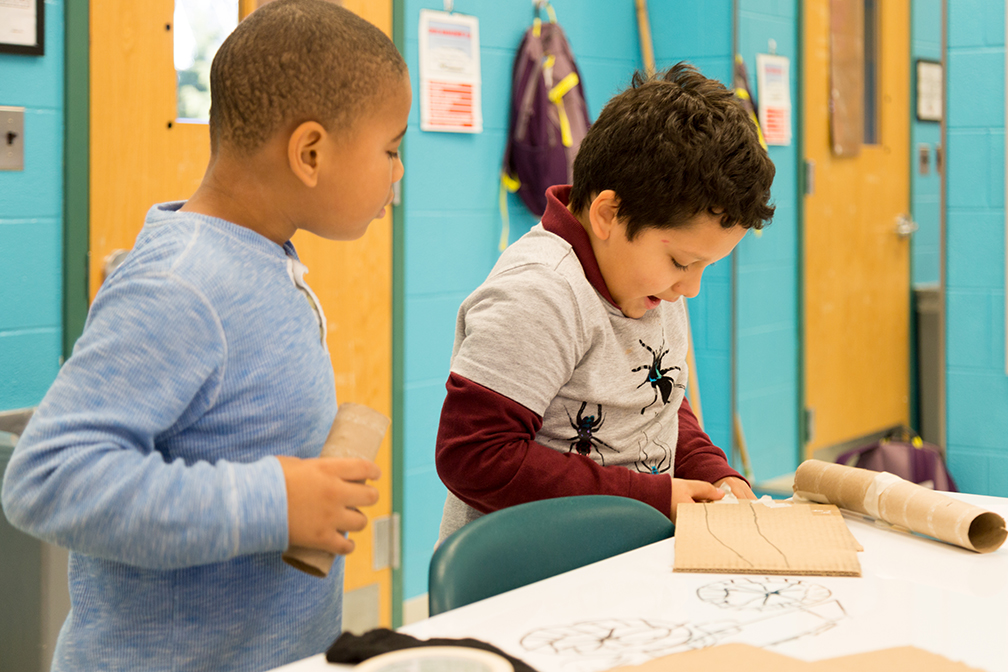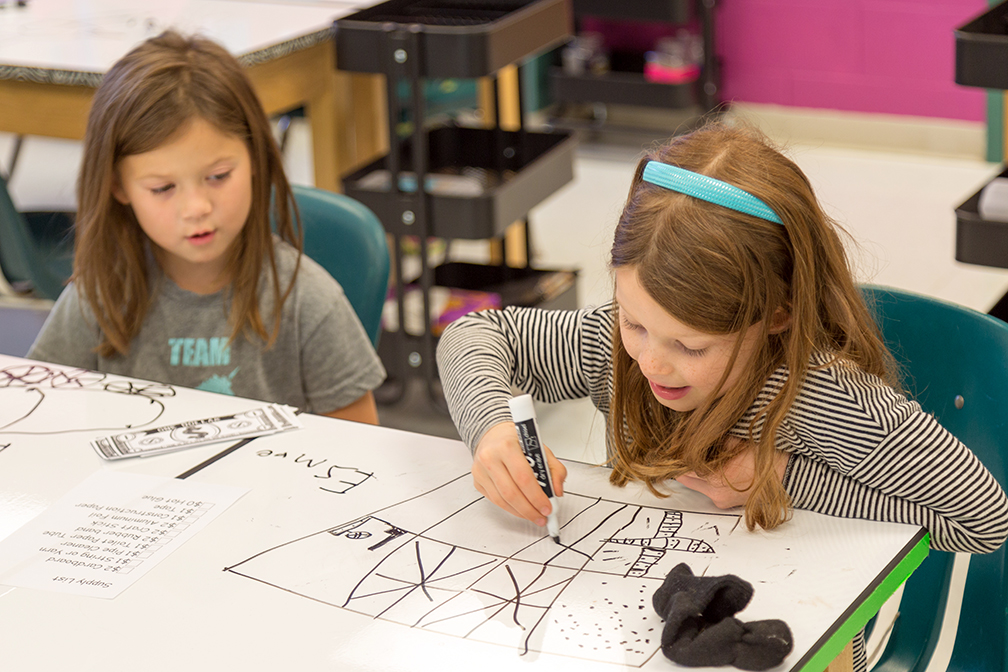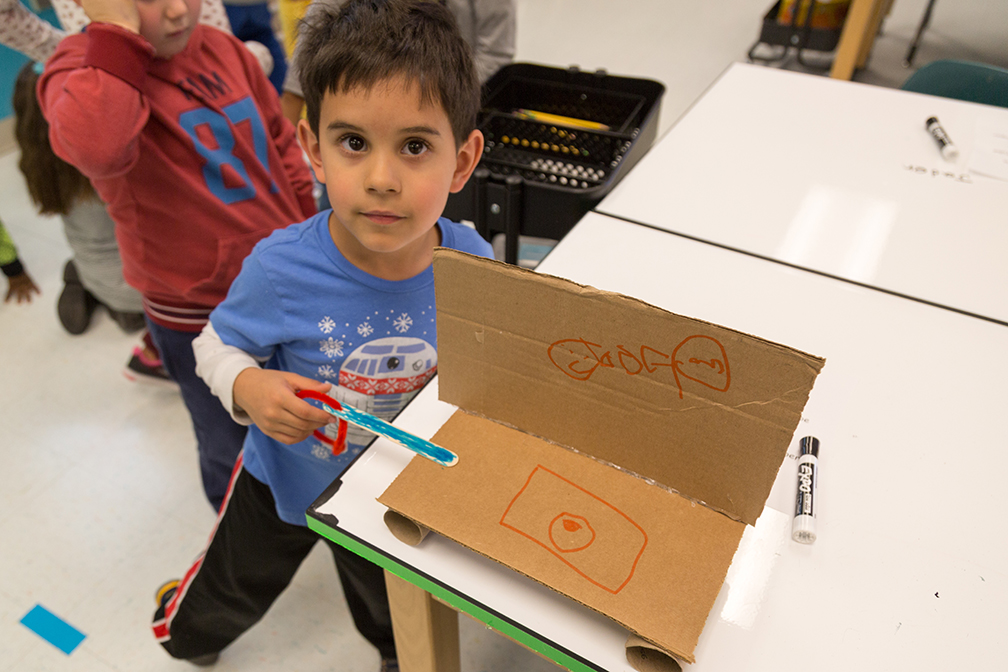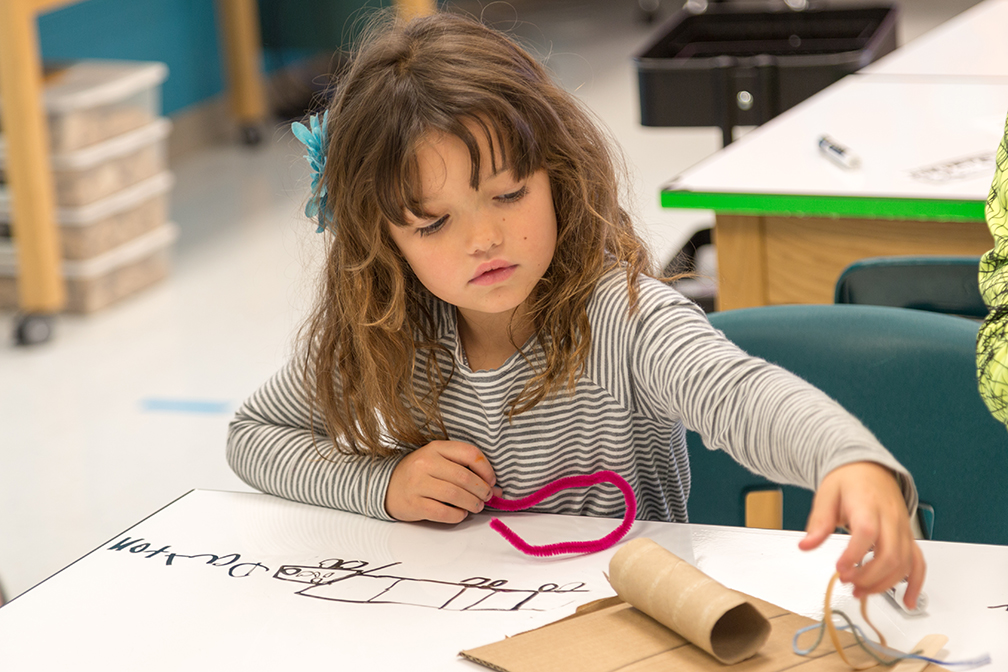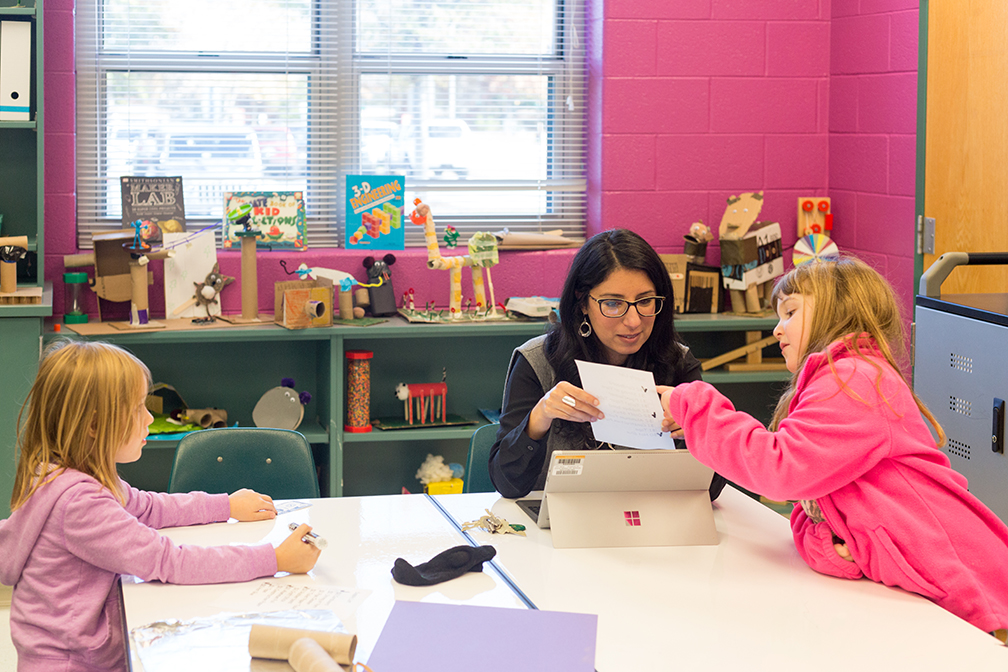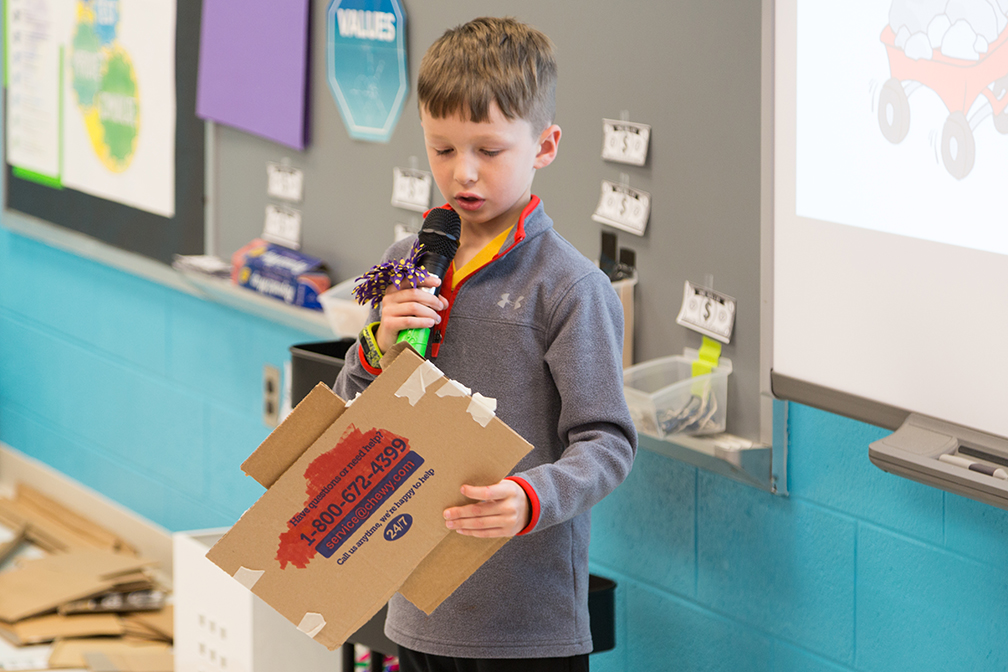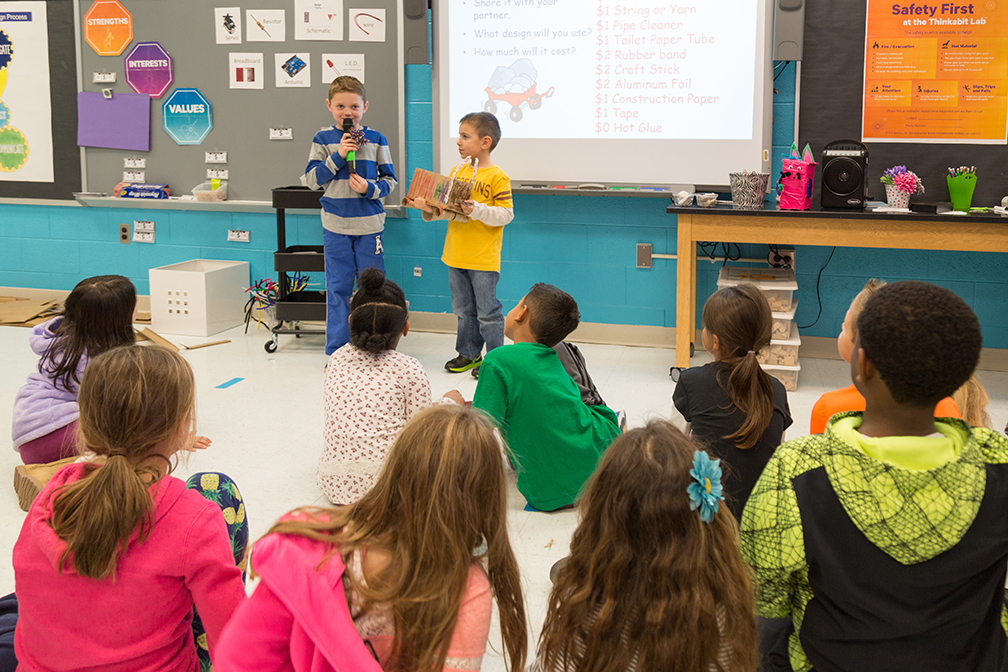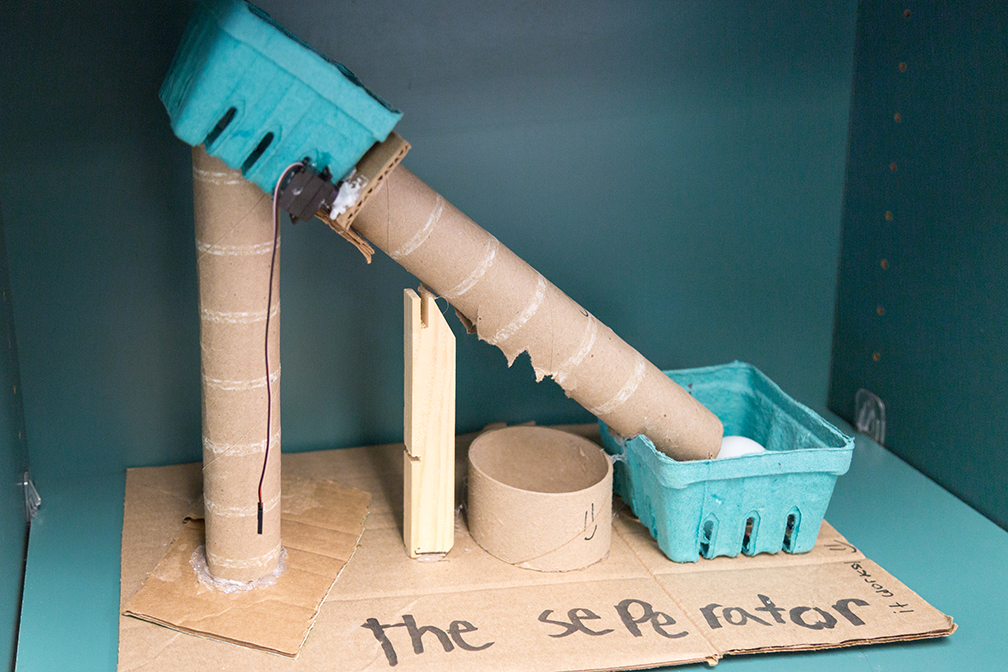Thinkabit Inspires a New Lab
November 20, 2017
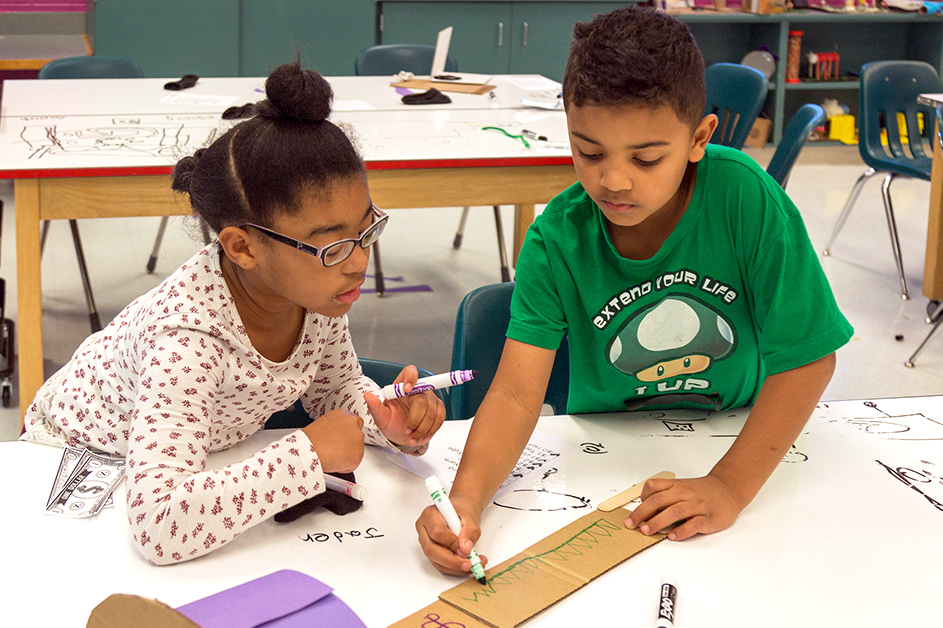
“This was better than Disney World! Do we get to come back?” a Cedar Point Elementary School student exclaimed after visiting the Qualcomm Thinkabit Lab at Virginia Tech back in April.
Cedar Point Principal Mark Marinoble, a Virginia Tech Class of 1995 graduate, felt the same excitement as his students when he visited the Thinkabit Lab himself.
“I had so much fun that night I had trouble sleeping,” Marinoble said.
Marinoble, who’s now enrolled as a Virginia Tech doctoral student in Falls Church, Virginia, was inspired to bring his students to the lab after one of his professors took his class on a visit. Marinoble and his classmates built robo-crafts and worked with servo motors.
After the elementary school field trip, the excitement among Marinoble’s fourth and fifth graders was contagious. Fourth-grade teacher Adair Solomon couldn’t get the visit out of her head.
“When the kids left, I’ll never forget … they were screaming, ‘This was the best field trip ever!’” Solomon said. “So that’s when the wheels started spinning in my head.”
A few weeks after visiting the lab, Solomon met with Marinoble.
“Ms. Solomon was changed by it,” Marinoble said. “She said, ‘I’ll do whatever it takes. I want to try to bring a lab like that here. What could we do?’”
Marinoble and Solomon then got together with Thinkabit Lab Director Jim Egenrieder and representatives from Qualcomm Incorporated to see how they could bring a Thinkabit Lab to their school in Prince William County, Virginia.
“We were a little bit nervous about it,” Marinoble said. “They actually approached us saying, ‘We’re interested in collaborating with your school on our expansion efforts. Would you be interested?’”
Cedar Point is one of the first schools in Virginia to get its own version of the Thinkabit Lab. Just like that, Solomon and her husband began working on setting up and painting the labs at Cedar Point over the summer before the 2017 school year.
“It was a blast because we’re empty nesters,” Solomon said. “[Qualcomm] gave us a design framework to build the lab — the ideas, the paint colors, everything they do.”
The lab was ready when the students returned to school after summer vacation. Since then, students from every grade level have spent time in the lab.
The students work on a variety of different projects. The fourth- and fifth-grade classes do more coding and robotics-type activities, while the younger grades work on engineering and simple machine concepts, and create inventions.
“It’s amazing what they come up with because there’s not a lot of prescription,” Solomon said.
Visiting the Thinkabit Lab changed Solomon’s life in more ways than one. After the trip, she finished up being a fourth-grade teacher and transitioned into becoming the STEAM (Science, Technology, Engineering, Art, and Mathematics) teacher for the 2017 school year. She’s the familiar face in the Tech lab for the children.
“Everything we do is meaningful and purposeful in this room. It’s not just fun,” Solomon said.
Most are familiar with the acronym STEM (science, technology, engineering, and mathematics), but as a STEAM teacher, Solomon believes the A in STEAM is often forgotten.
“I think art is almost always included, you just don’t realize you’re doing it,” Solomon said.
Solomon said the students are already gaining many skills from being the lab.
“My biggest takeaway truly is collaboration,” Solomon said. “I love seeing kids get to this frustrational level, but rather than fall apart, they end up working through it.”
Marinoble and the staff at Cedar Point are focusing on a growth mindset. He believes students need opportunities to work through initial failures as part of the learning process.
“We’re going to be intentional about giving kids challenging opportunities where they may not experience initial success,” Marinoble said. “Achievement does not always come immediately and requires grit and determination.”
Egenrieder says Virginia Tech and Qualcomm are opening more and more labs like Cedar Point’s all over the state and the Mid-Atlantic, with recent requests for opening labs in Hampton Roads, Richmond, Maryland, Pennsylvania, and as far as New York.
“I’m motivated to implement the Inspired by Thinkabit Lab program broadly because I know that I’m going to get expanded impacts by creating these labs with highly engaged teachers and thoughtful, progressively minded principals in these other schools,” Egenrieder said.
Since August 2016, more than 5,300 students have visited the Thinkabit Lab at Virginia Tech’s Northern Virginia Center in Falls Church. More than 1,000 teachers also visited, as well as a similar number of business and community leaders. Additionally, at least 700 parents have made their way through the lab.
“We hope that with each new lab implementation, like Cedar Point Elementary School’s, we’ll have a new opportunity to work with a new collection of highly engaged educators, like Adair and Mark, who help us explore new directions, new ideas, and then realize new outcomes and impacts,” Egenrieder said.
Marinoble is thrilled that the lab is tied back to his alma mater.
“The relationship with Virginia Tech has been outstanding,” Marinoble said. “I’m such a proud Hokie.”
In the meantime, Marinoble hopes Cedar Point’s Tech Lab will reach kids outside of his school.
“For me, the vision is to reach kids not just in the school, but certainly throughout Prince William County. And my long-term goal is to reach kids and teachers throughout the region,” Marinoble said.
The Thinkabit Lab is led by Virginia Tech’s Department of Engineering Education in the College of Engineering and School of Education in the College of Liberal Arts and Human Sciences, based on Qualcomm’s World of Work and STEM coursework.
Photos and story by Olivia Coleman
